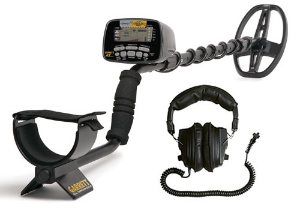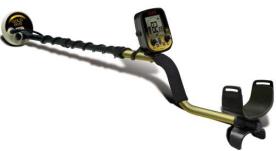Thursday, November 14 2013
If you've been prospecting for gold using a pan, sluice, highbanker or other traditional piece of equipment, there's another tool you may want to consider— a metal detector. Gold detectors are not necessarily higher in cost than an all-purpose detector, but they are built with a higher sensitivity to pinpointing pieces of gold, and have better ground balancing and discrimination abilities.
PI (pulse induction) detectors work a bit differently by putting magnetic field energy into the ground and then switching off and waiting a very short period before they start to look for a response. This makes them better at handling ground mineralization than a VLF detector because during that short delay the magnetic response of iron trash minerals that you don't want to find dies out, but the signal from tiny bits of buried gold does, too. VLF detectors are more sensitive to finding the smallest bits of gold, but do not as easily cancel out ground mineralization. Friday, November 01 2013
At first glance, metal detecting seems like the least demanding form of prospecting for gold. But it has its share of challenges, too, just like sluicing, drywashing, or panning by hand. Whether you've been swinging a metal detector for years, or just purchased your first machine, there might be a few things you could do to increase your chances of uncovering a piece of buried gold. Nugget of News Blog |
|
Nugget of News Blog |







